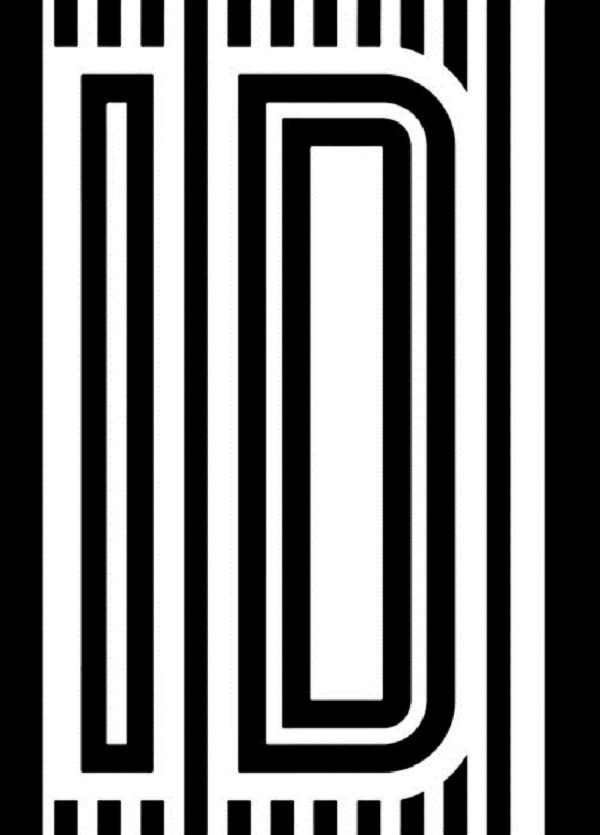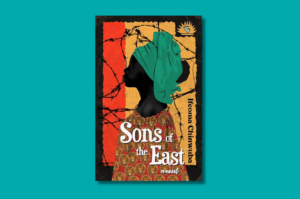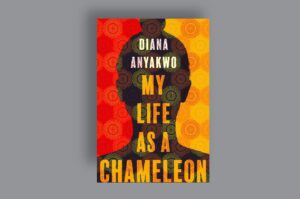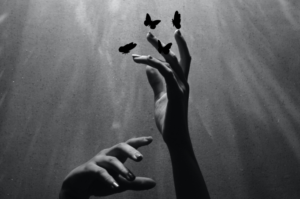
We announced that we would begin publishing reviews of the top three stories from the Short Story Day Africa Prize. The stories, alongside 18 others, appear in ID: New Short Fiction from Africa, edited by Nebila Abdulmelik, Otiene Owino, and Helen Moffett, and published by New Internationalist (UK & USA). ID is out in bookstores and on Amazon Kindle. Nigeria’s Emmanuel Tochukwu Okafor won the 2017 Short Story Day Africa Prize for “All Our Lives.” Here it is reviewed by South Africa’s Mapule Mohulatsi.
Black as Sin Stuffed in a Snuff Tin: ‘All Our Lives’ and the Nude Underdogs
We is the normative plural of I, used to denote oneself and another or others. Our or ours is its possessive. We, us, our. Zadie Smith in her ten rules of writing published by Brain Pickings warns us against writing in groups – ‘avoid cliques, gangs, groups. The presence of a crowd won’t make your writing any better than it already is.’ Kelwyn Sole too in his 2016 essay, ‘Here It Is Safe to Assume Nothing at All,’ writes that: we
“is a space for the individual poet to reflect on the unresolved tension between sharedness and specifity; that is, the connections and disconnections between I and We in terms of expressions and assumptions of individual experiences and perspectives vis-a-vis those commonly shared, defined in terms of a number of available modes of identity and affiliation.”
I too have my own elaborate sentiments on the dangers of writing of black people in conglomerate, how we should be careful of the ‘we’ in contemporary African Literature. But one still cannot help but take it back to Stanley Motjuwadi’s ‘Me I’m Black as Sin Stuffed in a Snuff Tin’ (White Lies), because in ranks, bazaars, malls, taxies, markets, registers, archives, mortuaries, hospitals, jails, and the Internet, black people are a plenty. Like sardines, tuna, salmon. Us.
NoViolet Bulawayo made the ‘we’ in African literature legal – her command of the multiple started a new sub-era of minor African literature. In her ‘Writing Outside the Nation,’ Azade Seyhan writes that “closely linked to the political disposition of minor literature is its practice of collective articulation […] nothing other than the a gesture of collective will.” She further expostulates that:
“[s]ince the writing of minor literature originates in communities marked by a loss or erasure of national or collective identity, memories and other fragments of historical and cultural repositories need to pooled; [h]ere literature finds itself positively charged with the role and function of collective, and even revolutionary, enunciation.”
We Need New Names held the splinters of collective memory like a vessel made of jewels; we all hit Budapest in search of guavas, witnessed our sick brothers disintegrate like smashed Coke bottles, and equally, we all dreamt of America. We became Darling, Bastard, Chipo, GodKnows, Sbho, and Stina – we all lived in Paradise.
Maybe black people are like confetti, small individual brightly coloured pieces that are thrown up in the air and then come down like rain in a splendor of colour; but one confetti piece is literally useless without the rest, as one raindrop is on its own. A good reminder of this is the 2017 winner of the Short Story Africa Day Prize, ‘All Our Lives’ by Tochukwu Emmanuel Okafor. ‘All Our Lives’ puts Smith, Sole, and I to sleep, peacefully. You can write in groups; if you do it well enough, you will do so without endangering the subject, the form, as well as the narrative. Okafor forces us to ask ourselves: What is a short story? And the answer comes in neat sentences, that when Africa is concerned, a short story is everyone. In Okafor’s house of hunger all is written in the slum of blackness where mosquitoes sing into ears, people lose their jobs, they roam the street. Everyone leaves The House of Hunger and it is better you write out of it than in it. In ‘All Our Lives’ we all get to go to cyber America.
‘All Our Lives’ brings forth the pungency of Marechera’s The House of Hunger with sentences that will leave you running, confessing your name, adding it to the list of those ‘city people who live in wooden shacks alongside lagoons that smell of decaying fish and shit.’ The House of Hunger is a cornucopia of testaments from the masses, a death sentence where we are wrapped into the mega black whole – or is it a blanket? – alas, it is something we all recognise, and possibly come from. The African cityscape captures Okafor’s imagination – it’s a place with which most have a love/hate relationship, a place of vibe, character, where dreams are made, where people get rich or join the ranks of the unemployed. Anything can happen.
The multiple protagonists in ‘All Our Lives’ are not unclear or even taken from all lengths of the African cityscape. They are not caricatures or the unfinished doodles of a five year old. They are visible in their difference. Firstly they are all men. They are twenty-five, twenty-six, and twenty-seven years old. They do not believe in any god. They simply got their things and left. Even though they are written off as multiple, they do not share everything. They are black. They are not black. They bleach their skin. They do not bleach their skin. The multiple protagonists are hustlers and dreaming men. They might not know each other yet they orbit the same spaces in Okafor’s Nigeria and in the metaphysical world of dreams. Some of them have little education whilst others have none at all. They have been happy. They have been comfortable. They have been enough.
I was especially struck by the ease in which Okafor transports the reader into other richer realms. He uses the world of dreams in two ways: at the first level it is a world of material dreams, on the second level it is an ethereal world, with bowing trees and obedient tigers:
At nineteen, twenty, twenty-one, this was how we dreamt. We found ourselves walking down an expanse of gold-carpeted road. On both sides of the road, trees climbed into the skies. They bore bananas, apples, mangoes, avocados, all the fruits we could imagine. As we walked down the road, animals—monkeys, goats, tortoises, rabbits, lions—bowed, waving at us after we had stepped further away. At the end of the road, a neem tree whistled, twisting towards us. Its branches swayed in the breeze, and it lowered itself before us, urging us to climb its trunk. We obeyed. We held on tight. The neem tree straightened and grew and grew. Eventually we climbed off onto the clouds. We shielded our eyes; it was bright all around. A gate creaked open. We saw people lying flat on their bellies, singing, All Hail the King. We marched on their bare backs and walked on into glass mansions that were ours and ours alone. House servants fell on their knees, welcoming us. We walked past great fleets of cars, past gardens square and verdant, past pools clearer than the skies, and on into enormous palaces. We sat on thrones. In this dream, we owned the city. We owned the people. We owned power.
In ‘All Our Lives’ just as in the Marechera’s The House of Hunger, the predicament of family becomes a metaphor for the nation especially through the gender spectacle that happens in the post-colonial every day. Discourse on gender and the family in African literature is conventionally central to ideas about the nation; this can be seen in the literary epoch of post-independence African literature that sets a heteronormative gaze on the discourse of family in relation to nation formation. This heteronormative gaze can be seen in Achebe’s Antills of the Savannah and Ngugi’s Petals of Blood. Through their depiction of what I indicate to be the gender spectacle, Okafor and Marechera dismantle the portrayal of nationhood and nation formation as an untroubled family romance; they disturb the state of not only family but gender relations as replicated in the nation state. If the First Generation writers portrayed what Muchemwa and Muponde term ‘Manning the Nation’ – usually through the eyes of male protagonists who often have hyper-masculine agencies and ideas about the nation – then Marechera and Okafor can be read as contemporaries who subvert the discourse on gender and family through the notion of spectacle in their representation of gender in the everyday.
The protagonists in ‘All Our Lives’ porn themselves through lies to old white American men in exchange for money, a little attention, and maybe even love. They embody stolen identities when the Internet gets to their city, become new men – the Internet is an opportunity to exercise gender and sexuality whilst making a little dough and improving one’s English:
By night, the Internet is so fast that the drowsiness in our eyes flees. We download photos from websites we cannot recall. A wiry-built white man baring his chest. An African-American, grinning, his hair tousled, both ears studded in a full semi-circle. Hunks. Perfect jaws. Perfect cheekbones. Glorious bodies. By night, we glow in these bodies that are not our own.
But these men do not just fool other men on the Internet. They do it to women too. They sell them dreams whilst asking for nudes and breasts on flashing screens. The women do not send money, the men are more profitable. In the story, the gender spectacle is always evoked, for one; the city is spoken of as an aunt:
The city is a fat, dark aunt with a tight-lipped smile, who embraces her prodigal sons. Yet, she cares little for them. She churns and churns us until we are millet chaff that the strong breeze sloughs off. And we drift deeper and deeper into the pitch-dark corners of her home.
In the story the notion of family is used to examine the Nigerian condition determined by economic, emotional, and physical violence. The story manifests continuous disconnectedness in which there is actually no action at all. The protagonists’ minds are the centres of activity: they reminisce about childhood experiences and through their eyes we see how gender in the family system is an unnerving reflection on the new nation state. The men leave grieving mothers and silent fathers behind. Okafor traces the narrative back to the familial trauma which created the guilt and shame complex in them from very early in life.
The Internet is equally a slum where these men long to marry their online dates, take nudes of themselves, film themselves masturbating, record themselves dancing naked, get excited, leave, and do not leave. Anything can happen.
‘All Our Lives‘ is an ode to the dreams that are impossible to happen but we continue to live in them despite the shantytown that is post-colonial reality. Read it!
Read Emmanuel Tochukwu Okafor’s ‘All Our Lives‘
ABOUT THE REVIEWER:
MAPULE MOHULATSI is a reader and writer. Her work has been published in Enkare Review, Itch Magazine, and This Is Africa, amongst others.









sappingtonscarpetcare.com September 06, 2018 13:39
I cherished up to you will obtain carried out right here. The comic strip is attractive, your authored material stylish. nonetheless, you command get got an impatience over that you would like be turning in the following. sick definitely come further earlier again as exactly the same nearly a lot regularly within case you defend this hike.